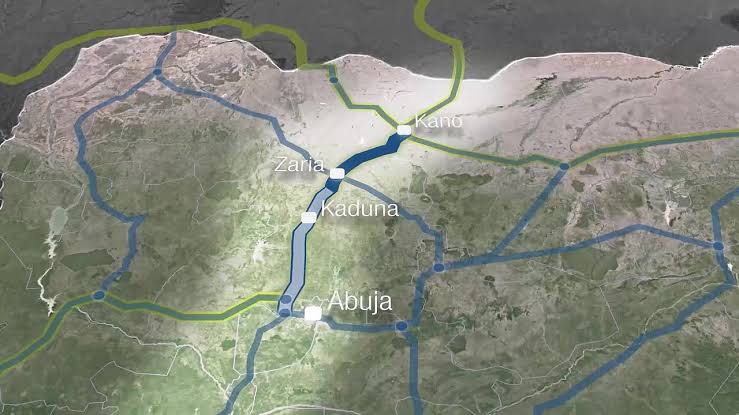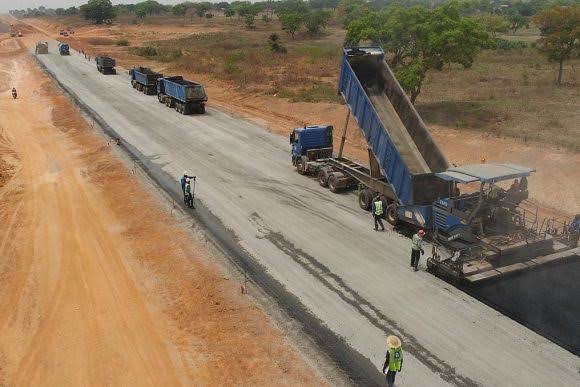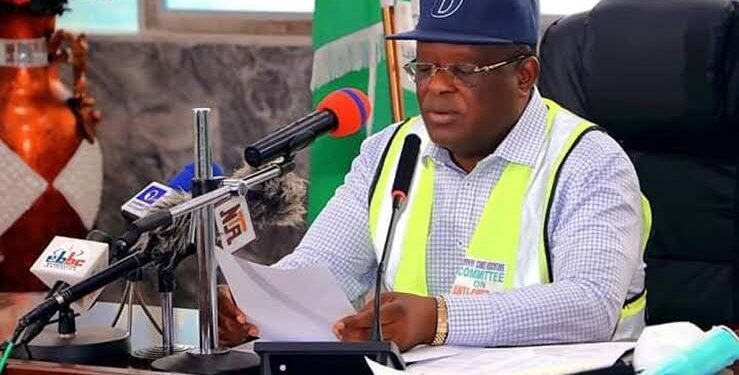The Federal Government has officially terminated Julius Berger’s contract for the Abuja-Kaduna highway, citing delays and irregularities in project costs as the primary reasons for this decisive action.
This announcement was made by the Minister of Works, David Umahi, during a ceremony on Thursday in Abuja, where he inaugurated the rehabilitation of the Abuja-Kaduna-Zaria-Kano road.
According to Minister Umahi, this decision is part of a more extensive review process aimed at ensuring the effective execution of crucial infrastructure projects throughout the country. He noted that the contract for the Abuja-Kaduna highway was originally awarded in 2018 during the tenure of former President Muhammadu Buhari, with a contract value of N391 billion.

In his remarks, Umahi acknowledged that while some progress has been observed on certain segments of the road, specifically the Kaduna-Zaria and Zaria-Kano sections, the work on the Abuja-Kaduna segment has been notably slow. This delay has led to considerable frustration on the part of the government.
“The Federal Government has revoked a section of the Abuja-Kaduna highway contract being handled by Julius Berger over irregularities. The Minister of Works, David Umahi, made this known during the inauguration of the rehabilitation of the Abuja-Kaduna-Zaria-Kano road on Thursday in Abuja.
“Umahi said that the road contract was awarded to Julius Berger in 2018 under former President Muhammadu Buhari for N391 billion.
“The minister said that the Kaduna-Zaria section has been completed and the Zaria-Kano section is almost completed; however, the Abuja-Kaduna section has witnessed a slow completion rate over the past six years,” a NAN report noted in part.

Further, the Minister mentioned that the current administration had initially taken over the responsibility for 240 kilometers of Section I of the Abuja-Kaduna road project and extended it by an additional two kilometers toward Kogi State in order to address the prevailing poor road conditions.
To manage financial expenditures effectively, the project was segmented into three parts after Julius Berger proposed a staggering budget of N1.5 trillion to complete the entire road within a four-year timeframe. However, Umahi disclosed that under President Bola Tinubu’s administration, this proposal was rejected. Instead, the government opted to divide the project into smaller segments, a decision that Julius Berger ultimately accepted.
Despite this arrangement, concerns arose regarding Julius Berger’s management of the project. Allegations surfaced that the company was engaging in delays that were detrimental to overall progress. Initially, Julius Berger had agreed to a monthly payment plan of N20 billion from the Ministry of Finance to expedite the project’s timeline. However, the company later sought to revise this agreement, increasing the project’s cost from N710 billion to N740 billion, which the government approved.
Even after this adjustment, Julius Berger recently submitted yet another request, this time seeking to raise the cost to N903 billion. This latest proposal was met with disapproval from the government, which found it unacceptable.
Minister Umahi did not shy away from expressing his frustration over these repeated financial demands, warning that the government would no longer tolerate such practices from contractors. The decision to revoke Julius Berger’s contract underscores the government’s commitment to addressing inefficiencies and ensuring that contractors adhere to their obligations within the established timelines and budget constraints.































